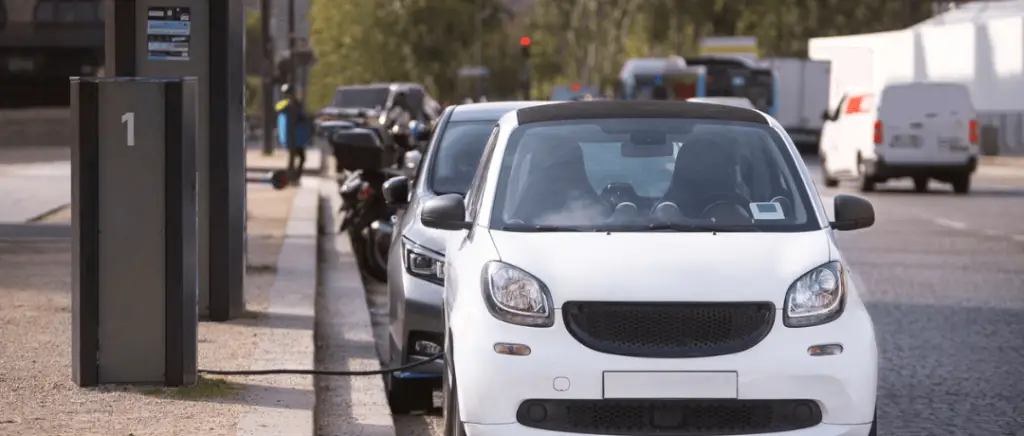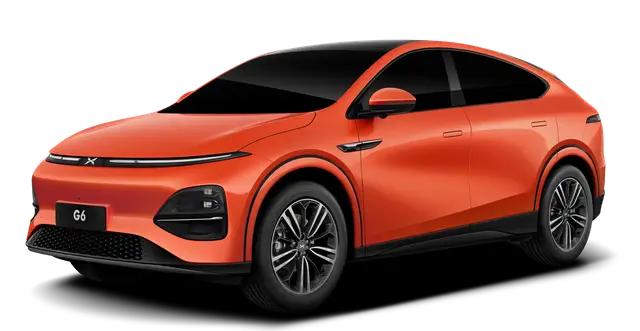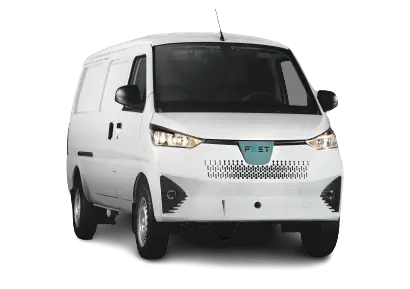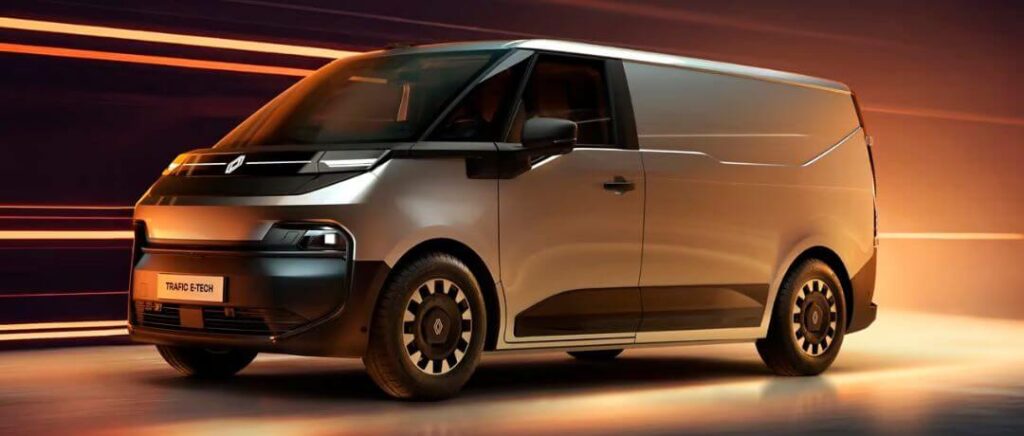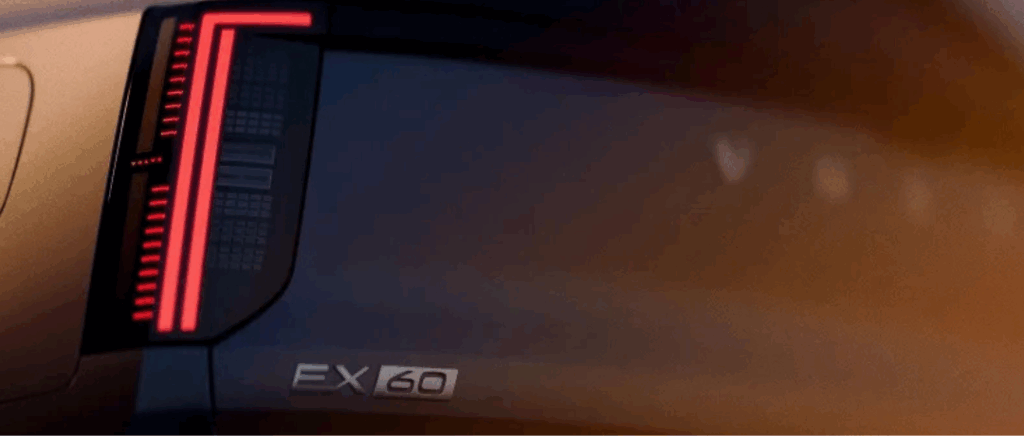The evolution of curbside charging infrastructures
Recent advances
Electric vehicle recharging technology in France has made significant advances. Among the most significant innovations, fast charging has become a priority for public authorities, private operators and manufacturers, considerably reducing the time needed to recharge a battery. Fast-charging stations can now recharge a car in as little as 30 minutes, making electric vehicles more practical for everyday use and long journeys.
In addition, wireless charging is gaining ground, although adoption is still limited due to high initial costs and moderate interest from some manufacturers. However, companies like Tesla are at the forefront, developing induction charging technologies that could soon become more commonplace.
The number of recharging points has increased considerably, even exceeding the number of service stations in some regions, demonstrating France's commitment to electric mobility. Efforts have been made to integrate clean, renewable energy sources to power these infrastructures, with initiatives aimed at making green energy more accessible and competitive.
Ambitious projects such as the French government's France Relanceplan, aim to transform every freeway rest area into express recharging zones, ensuring that long electric car journeys are as convenient as possible.
These technological advances and the expansion of installations show that France is on the right track for a successful transition to electric mobility, with infrastructures that meet the growing needs of electric vehicle drivers.
Pioneering cities
Several French cities stand out for their investments in charging infrastructure for electric vehicles, demonstrating their commitment to sustainable mobility:
- Paris the French capital has not only extended its EPZSs, but has also invested massively inrecharging infrastructure, particularly at the kerbside, to support a rapid transition to electric mobility. The City of Light is renowned for its strict measures limiting the circulation of the most polluting thermal vehicles in the city center.
- Lyon and Marseille Lyon and Marseille: these metropolises are closely following each other with similar initiatives, such as integrating recharging infrastructures into urban development plans, and adopting regulations aimed at reducing the number of combustion-powered vehicles on the roads.
- La-Roche-sur-Yon innovative city with integrated solutions such as charging stations in lampposts, facilitating access to recharging without the need for major infrastructure work.
- Aubervilliers Aubervilliers: this city is renowned for its proactive approach, installing fast-charging stations in partnership with private and public players, thus supporting the use of clean vehicles even for short stops.
These efforts are supported by national programs such as ADVENIR which finances the installation of charging stations, encouraging companies and local authorities to develop their own charging networks. These local initiatives are part of a wider context in which France, with the help of the European Commission and industry players, is seeking to extend its charging network to facilitate a smooth transition to electric mobility.
Paris: focus on a leading city
Paris stands out as a leader in investment in electric vehicle charging infrastructure. The city has taken steps to reduce pollution and promote electric mobility among residents and visitors.
What are the major developments?
- Extension of EPZs Paris has set up a single EPZ covering the entire area bounded by the A86 freeway. This metropolitan EPZ includes the City of Paris and neighboring communes.
- Investment in recharging infrastructure The city has increased the number of public charging stations available, from the beginning of 2023 to now, the number of ultra-high-power charging stations has doubled.
- Government subsidies and support Paris benefits from the ADVENIR program, which finances up to 40% of the installation of recharging stations, encouraging local businesses and administrations to develop their own recharging networks.
These efforts make Paris an example of urban transformation geared towards cleaner, more sustainable mobility, by anticipating the growing need for recharging infrastructure to support a fleet of fleet of electric vehicles fleet. The city continues to invest in advanced recharging technologies and promote policies that support the ecological transition, while enhancing the quality of urban life.
Also read → What's the current status of charging stations?
The benefits of accessible and affordable recharging
Impact on ecological transition
The development of electric vehicles, combined with an adequate recharging infrastructure, makes a significant contribution to reducing greenhouse gas emissions. The use of electricity, especially when produced from renewable sources, reduces thecarbon footprint of vehicles.
For example, the carbon content of electricity can vary significantly depending on the source, from 78 g CO2/km for solar power to over 1 kg CO2 for coal. Adopting a renewable electricity mix therefore helps to minimize the environmental impact of electric vehicles.
The absence of direct pollutant emissions, such as nitrogen oxides and fine particles from electric vehicles, leads to a significant improvement in air quality in urban environments. This contributes directly to better public health by reducing road traffic-related air pollutants. This improvement is all the more significant as recharging infrastructures encourage greater use of electric vehicles.
Finally, the adoption of smart charging strategies, such as off-peak charging control or the use of integrated energy management systems, optimizes the use of energy resources and reduces dependence on fossil fuels. These practices can also improve the efficiency of the electricity grid and encourage the integration of more renewable energies, thereby increasing overall environmental benefits.
Facilitating electric mobility
In France, the development of public charging infrastructure has closely followed the increase in the number of electric vehicles on the road. By 2022, the ratio was of one public charging point for every 8 electric vehiclessurpassing the European Commission's initial target of one for every 10 vehicles.
This increase is a response to the rapid growth of the electric car market, with the number of charging points now exceeding that of traditional service stations. This increased density of charging points makes electric vehicles more accessible for everyday use and long-distance journeys, reducing one of the main barriers to the purchase of an electric vehicle.
The adoption of smart charging is another key factor facilitating the uptake of electric cars. Intelligent charging management systems can smooth out energy demand, optimize the use of renewable energy resources, and reduce energy costs for consumers. Not only do these technologies enable better integration of electric cars into the power grid, they also make the use of electric vehicles economically more advantageous.
Impact on users
The expansion of IRVEs is having a profound influence on users' travel habits. In most households with an electric vehicle, it becomes the main vehicle in most cases. In comparison with previous years, users are more confident in electric mobility, thanks to improved access to recharging infrastructures.
Nevertheless, despite an increase in the use of public charging stations, the majority of electric vehicle userss (85%) continue to recharge mainly at home. This underlines the importance of home infrastructure in integrating electric cars into users' daily lives.
The future of electric car charging in France
Future trends
Extending and densifying recharging infrastructures
Charging infrastructures in France are set to continue expanding significantly. The French government has already the target of 100,000 public charging points and is now aiming for 400,000 points by 2030. This expansion is crucial to keep pace with the growing number of electric vehicles, with forecasts indicating that they could represent between 20% and 40% of the French car fleet by 2035.
Ultra-fast, wireless recharging
Fast and ultra-fast charging technologies are booming. Charging points of 150 kW or more, which can recharge an electric vehicle in less than 30 minutes, are becoming the norm. For example, initiatives such as those by Engie and Vianeo plan to install thousands of ultra-fast charging points by 2025.
Wireless charging, although less widespread at present, is a promising technology for the future. It offers an enhanced user experience by eliminating cables and facilitating access to charging, especially in urban spaces where parking is limited. Companies like Tesla are actively exploring these technologies with a view to integrating them into their future models.
Integration of renewable energies and intelligent energy management
The integration of renewable energies into charging infrastructures is a key trend for reducing the carbon footprint of EVs. Charging stations powered by solar or wind energy are becoming more commonplace, contributing to a sustainable energy transition. At the same time, intelligent energy management technologies such as smart grids are maximizing the use of renewable energies and reducing charging costs for users.
Developing recharging infrastructures in rural areas
While urban areas already benefit from a relatively high density of charging stations, attention is now turning to rural areas. The aim is to ensure uniform national coverage to facilitate long-distance travel and make electric mobility accessible to all. Initiatives such as the "France Relance" project aim to install charging stations at every motorway rest area, thus reducing "white zones" for charging.
Future innovations
The future of IRVE in France promises many innovations to improve the efficiency and availability of charging stations:
- Ultra-fast charging: ABB unveils a new generation of fast chargersthe Terra HPfast chargers, capable of recharging a vehicle in just a few minutes. These 350 kW chargers are designed for installation in charging stations along freeways and in large urban areas.
- Bidirectional charging: Vehicle-to-Grid (V2G), Vehicle-to-Home (V2H) and Vehicle-to-Building (V2B) enable electric vehicles to return the energy stored in their batteries to the grid or to a building. Nissan and Mitsubishi are pioneers in this field, with pilot projects underway in Europe and Asia.
- Charging stations in underground parking lots: Q-Park plans to install 4,000 charging stations in its parking lots by 2025, while Total and Indigo are launching fast-charging stations in several parking lots in France.
- Wireless charging stations: Although still in the experimental phase, wireless charging is a promising technology for the future. It would make charging stations more accessible, especially in dense urban areas where space is limited.
Also read → Are electric cars the future?
Long-term objectives
To achieve sustainable electric mobility, the French government and municipalities have set ambitious targets in line with environmental commitments and the growing need for charging infrastructure.
National targets in figures
- 100,000 charging points by 2023 : France has already exceeded this target in May 2023 by installing over 118,000 charging points, exceeding initial expectations and laying the foundations for continued expansion.
- 7 million recharging points by 2030 : This figure includes both public and private charging points, with the aim of guaranteeing widespread, accessible coverage throughout the country. This ambition is supported by financial incentives and subsidy programs for the installation of charging points in businesses and homes.
End of sales of new combustion-powered vehicles by 2040 : As part of the Mobility Orientation Actthe government aims to ban the sale of passenger cars and light commercial vehicles using fossil fuels, thus encouraging the transition to electric and plug-in hybrid vehicles.
What are the local and municipal initiatives?
- Low Emission Zones : Major cities such as Paris, Lyon and Marseille have set up ZFEs to reduce CO2 emissions and improve air quality. These zones ban or restrict access to the most polluting vehicles, encouraging the adoption of electric vehicles.
Deployment of fast charging stations : Projects such as "France Relance" aim to equip every motorway rest area with fast-charging stations, facilitating long-distance electric vehicle journeys. Public-private partnerships, notably with companies such as Total and Indigo, are contributing to this expansion, with installations planned in several parking lots and public spaces.
What are the environmental and economic challenges?
- Carbon neutrality by 2050 : Aligned with the Paris AgreementsFrance is aiming for carbon neutrality by 2050. This transition implies a massive electrification of the vehicle fleet and the promotion of renewable energies to power recharging infrastructures.
- Developing the battery industry : The national battery strategy, part of the France 2030 plan, aims to establish battery mega-factories in France. This initiative supports the production of two million electric vehicles a year and the creation of thousands of jobs in the green technology sector.
Conclusion
The growth of kerbside charging for electric vehicles in France is therefore a key element in the transition to sustainable mobility. With over 118,000 charging points installed and ambitious targets for 2030, France is a leader in Europe. Technological innovations, public policies and local initiatives are converging to make electric mobility accessible and efficient, helping to reduce CO2 emissions and improve air quality. The future of electric mobility in France looks promising, with charging infrastructures constantly evolving to meet the growing needs of users.
